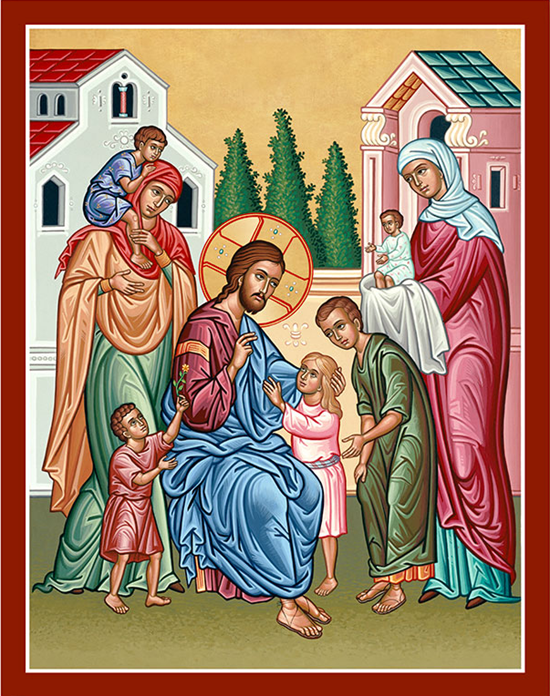Righteousness
Twenty-Fifth Sunday Scripture Readings

You may find today’s homily a little esoteric and maybe a bit hard to follow. Nobody said that exploring the Scriptures would be simple. As strange as it may seem, we can’t genuinely understand our Judeo-Christian Scriptures by simply picking them up and reading them. The Scriptures as we know them today are the end result of thousands of years of spiritual experience from thousands of women and men. These lived experiences have been reflected on, spoken of, and written about in various languages over not just centuries but millennia. Thoughts are fleeting, ideas are fluid, languages and meanings change. To pretend that any word or phrase we read in the Bible has always meant what it means for us today is just silly. That’s not how human communication works.
How, then, can we ever get back to recapture the spiritual experiences that are encoded in the words of our Scriptures? Dictionary meanings evolve, while contexts do not. We take each word and see where it fits in the various contexts where we find it used, both within our Scriptures and in contemporary secular writings. These contexts are all-important. The Swiss linguist Ferdinand de Saussure called language a “game of chess.” What he meant was that the meaning of every word, like a chess piece in a game, is defined by every other word in the game. That’s how we can find original meanings of words and follow their evolution through time.
Seeing this process at work can help us to find the unity in today’s readings. Did you notice when reading the Scriptures today that there are two distinct themes involved? The first theme we encountered in our first reading from the Book of Wisdom was the prediction of the sufferings of the Messiah. The wording of this passage should sound very familiar because it was used extensively by the gospel writers in their narrations of Christ’s passion and death. They saw how his suffering parallelled and fulfilled this text. Likewise, in the first part of today’s gospel reading, we’re presented with Jesus’s second prediction of his passion, death, and resurrection. The first theme, then, is the suffering of the Messiah.
There is a second theme. Today’s second reading from the letter of Saint James is a meditation on moral rectitude. He traces back the source of his community’s social ills to their moral failings. Conflict, he writes, arises out of spiritual disease, and he identifies that disease as self-importance. It should come as no surprise that the second half of today’s gospel reading touches on the same theme. Jesus puts tangible evidence of the spiritual mindset in the form of a child into the midst of his disciples and tells them that the key to genuine spirituality is humility like that of the child.
Can we uncover a common idea that links these two themes? I believe that the key lies in this passage from the second reading where James writes, “And the fruit of righteousness is sown in peace for those who cultivate peace.” Righteousness, for James, is that spiritual attitude that is the antidote for the spiritual disease behind all conflict. I want to focus our attention on that word, “righteousness.” Its meaning has evolved from its first use in the Hebrew Scriptures, through the changes made to it in the Greek Christian Scriptures, and down to its meaning today. Righteousness was first spoken of by the Hebrews who used the word צֶֶדֶקָה (ṣedeḳah). It has meant, over time, correctness, innocence, truthfulness, justice, or, in a word, honesty. It originally described a right relationship with the world. Over time, its meaning was narrowed as it was used to describe obedience to the law. The righteous person, by Jesus’s time, was the one who was observant of the Law of Moses.
Once the followers of Christ began writing about their experiences, they translated this Hebrew concept into Greek, using the word δικαιοσυνη (dikaiosunē), The Christian context where we find that word tells us that they have returned it much closer to the original meaning in Hebrew, where it indicated a right relationship with one’s self, with others, and with God. Righteousness, then, goes far beyond obedience to the law, and, as a matter of fact, Saint Paul draws a stark contrast between the pseudo-righteousness of those whose hearts are arrogant and self-centered while still obeying the letter of the law, with those whose righteousness consists of an honest relationship with reality, therefore an honest relationship with God. That, by the way, is a good definition of genuine spirituality. Righteousness can’t be attained just by being “good.” Having a right relationship with reality is a gift from God—what we call grace. Another meaning of both ṣedeḳah and dikaiosunē is “salvation” because attaining an honest relationship with self, others, and God constitutes what salvation is all about.
Looking back again at our second reading from Saint James, we immediately see that a life lived in righteousness—that right relationship with reality—is the exact opposite of a life of jealousy and selfish ambition, which he identifies as the root cause of strife. In the gospel, both Jesus’s example of the child, without jealousy and selfish ambition, and his acceptance of his Father’s will in his passion and death give us a model of righteousness, properly understood. That brings me back to what I consider the three foundation stones of my spirituality: namely, acceptance of life on life’s terms, surrender to the will of God as I understand it, and gratitude for all God’s gifts, the hard ones as well as the easy ones.
Here is one final point. Throughout history, failure to appreciate the subtle nuances of Scriptural language has caused tremendous problems with our spiritual heritage. We’ve all been taught to look to the Ten Commandments to evaluate our sinfulness. That is an evaluation based on legal righteousness. Our concept of sin as the breaking of the commandments is not Christian. Sin isn’t about lies, thefts, injuries, murders, and sex. It’s about selfishness. But you will not find thou shalt not have selfish ambition in any of the commandments, yet that is the sin against righteousness. When the honest relationship with reality is missing, then come the conflicts, wars, covetousness, murder, and all the horrors we experience both as individuals and as a society. What happens when people abandon righteousness? What happens when people turn away from the image of selfless surrender to the will of a loving God that we see in the life, death, and resurrection of Jesus? Well … just look around.
